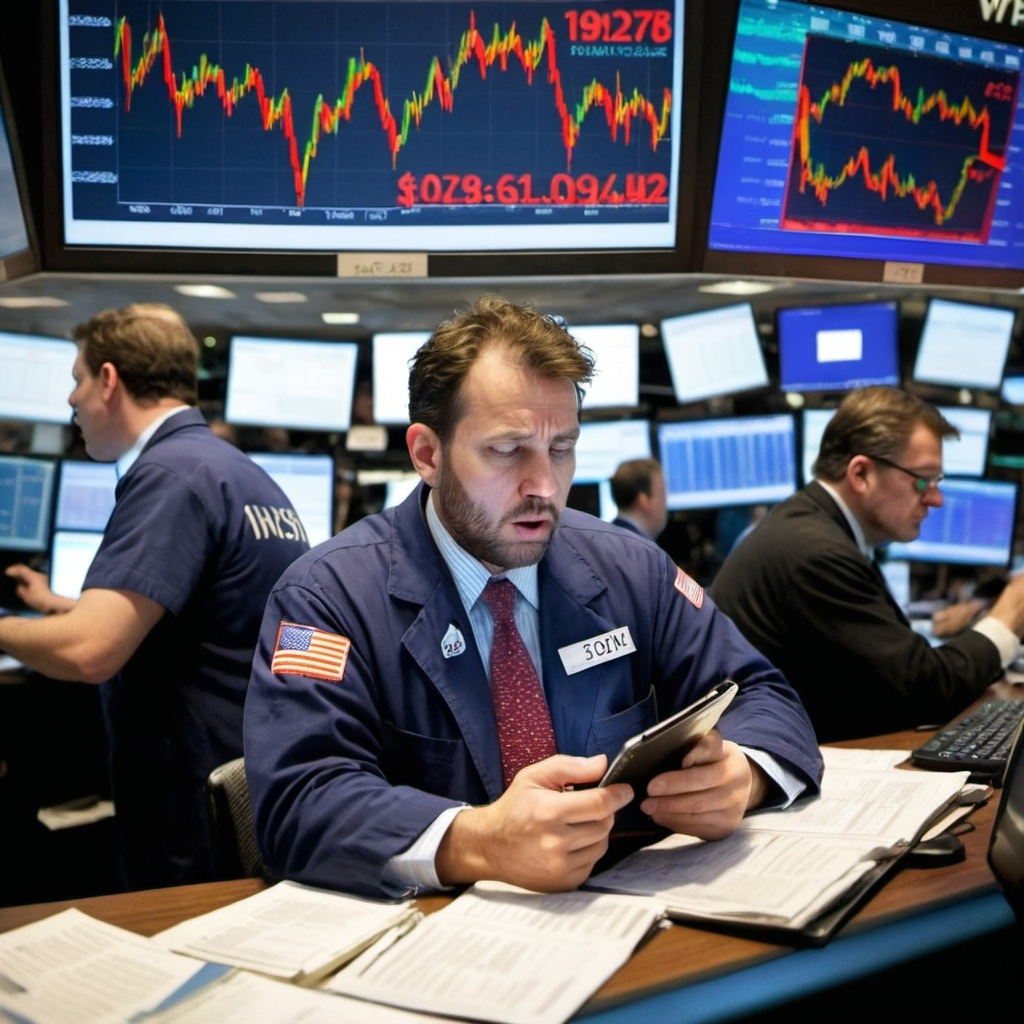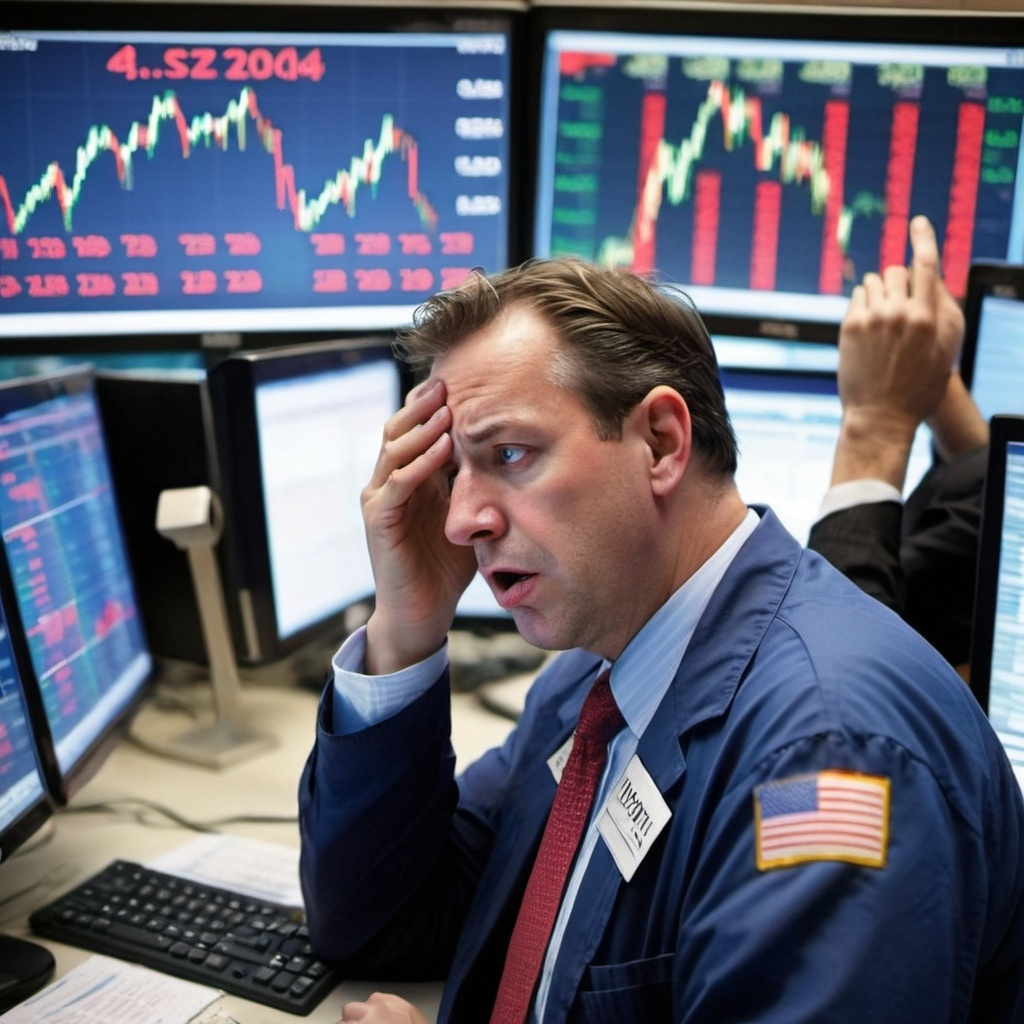Comparing Black Monday (1987) with the Stock Market Crash on August 5, 2024
The stock market crash on August 5, 2024, in India (NSE) and Japan bears striking similarities to the infamous Black Monday of 1987, but it also presents unique circumstances and implications. Let’s compare the two events, focusing on the causes, impacts, and responses. Today its touted that its due to the uncertainty and slowness in the US stock market but lets find out.
What were the triggers
Black Monday (1987)
- Economic Boom and Speculation: The 1980s saw a significant economic boom, particularly in Japan, with inflated asset prices due to speculative investments in real estate and stocks.
- Global Economic Turbulence: The Plaza Accord of 1985 and the rapid appreciation of the yen affected Japan’s trade balance, setting the stage for a broader financial crisis.
- Technological Limitations: The absence of advanced trading technologies led to panic selling and a lack of coordinated response mechanisms.
Stock Market Crash (August 5, 2024)
- Pandemic Recovery and Inflation: The world was recovering from the economic impacts of the COVID-19 pandemic, leading to inflationary pressures and tightening monetary policies.
- Geopolitical Tensions: Ongoing geopolitical tensions, particularly involving major economies like the U.S., China, and Russia, created an uncertain global economic environment.
- Technological Advancements: Advanced trading algorithms and high-frequency trading contributed to rapid market movements, exacerbating the crash.
Immediate Impacts
Black Monday (1987)
- Sharp Decline in Stock Prices: The Nikkei 225 dropped by about 14.9%, while the Dow Jones Industrial Average fell over 22%.
- Banking Sector Strain: The speculative bubble in real estate and stocks led to a significant increase in non-performing loans, straining the banking sector.
- Psychological Impact: Investor confidence was severely undermined, leading to more cautious and risk-averse behavior.
Stock Market Crash (August 5, 2024)
- Market Plunge: Both the NSE and the Tokyo Stock Exchange (TSE) experienced significant declines, with the Nifty 50 and Nikkei 225 dropping by over 10%.
- Financial Sector Stress: The banking sectors in both countries faced immediate stress, with a sharp increase in market volatility and liquidity issues.
- Investor Sentiment: The crash led to widespread panic and a rapid shift towards safer assets, such as gold and government bonds.
Long-Term Consequences
Black Monday (1987)
- Prolonged Economic Stagnation: Japan experienced the “Lost Decade” of economic stagnation, characterized by deflation and slow growth.
- Structural Reforms: The crash prompted regulatory reforms and changes in corporate governance to prevent future crises.
- Global Financial Stability: Lessons learned contributed to the development of more robust global financial stability frameworks.
Stock Market Crash (August 5, 2024)
- Economic Uncertainty: The crash has led to economic uncertainty in both India and Japan, with potential long-term impacts on growth and employment.
- Regulatory Reactions: Immediate steps were taken by regulatory authorities to stabilize the markets, including interest rate adjustments and liquidity injections.
- Global Market Reactions: The interconnectedness of global markets means that the crash’s impacts are felt worldwide, prompting coordinated international responses.
Responses to push back the impact
Black Monday (1987)
- Monetary Policy Adjustments: Central banks, including the Bank of Japan, lowered interest rates and injected liquidity into the markets.
- Government Interventions: The Japanese government implemented measures to stabilize the banking sector and restore confidence.
- Market Reforms: Structural reforms were introduced to improve market transparency and prevent excessive speculation.
Stock Market Crash (August 5, 2024)
- Central Bank Actions: Both the Reserve Bank of India (RBI) and the Bank of Japan (BoJ) took immediate steps to provide liquidity and stabilize the financial system.
- Government Measures: Governments in India and Japan announced fiscal measures to support affected sectors and bolster investor confidence.
- Technological Safeguards: Modern trading systems and circuit breakers were activated to prevent uncontrolled selling and manage market volatility.
Dive down in History of Stock Market Black Monday: The Japanese Market Crash
Black Monday, October 19, 1987, is a day that remains etched in the annals of financial history. On this day, stock markets around the world plunged dramatically, with the Dow Jones Industrial Average in the United States losing over 22% of its value in a single day. This unprecedented collapse did not spare Japan, one of the world’s most significant economies at the time. The Japanese market experienced a severe downturn, the effects of which resonated deeply within the country’s financial system and beyond. Understanding the Japanese market crash on Black Monday involves examining the preconditions that led to the crash, the immediate impacts, and the long-term consequences on the global financial landscape.
Preconditions Leading to the Crash
Economic Boom of the 1980s
The 1980s were a period of significant economic expansion for Japan. The country’s export-driven economy thrived, driven by strong industrial production and technological advancements. Japan became a global leader in industries such as electronics and automobiles, resulting in substantial trade surpluses. The Japanese stock market mirrored this economic boom, with the Nikkei 225 index soaring to unprecedented heights.
Real Estate and Asset Bubble
However, beneath the surface of economic prosperity, a speculative bubble was forming, particularly in real estate and stock prices. The asset bubble was fueled by easy credit policies and aggressive lending by banks, which led to excessive speculation. The value of real estate and stocks became highly inflated, creating an unsustainable economic environment.
Global Economic Context
Internationally, the global economic context of the mid-1980s also played a significant role. The United States was dealing with significant fiscal and trade deficits, and the Plaza Accord of 1985, which sought to depreciate the U.S. dollar, had unintended consequences. The yen appreciated rapidly, making Japanese exports more expensive and impacting the country’s trade balance. This international economic turbulence set the stage for a broader financial crisis.
The Crash: Black Monday
The Initial Shock
On October 19, 1987, the global financial markets experienced a catastrophic sell-off. The Tokyo Stock Exchange (TSE) was no exception. The Nikkei 225 index, which had been exhibiting signs of overvaluation, plummeted alongside other global indices. The initial shock was profound, with the Nikkei 225 dropping by about 14.9% on Black Monday, marking one of the most significant single-day declines in its history.

Panic and Contagion
The panic that gripped the markets was palpable. Investors, both institutional and retail, rushed to sell their holdings, exacerbating the downturn. The concept of contagion became evident as the crash spread from one market to another. Japan, being a major global player, was significantly impacted by the interconnectedness of global financial systems.
Government and Institutional Response
In the immediate aftermath of the crash, the Japanese government and financial institutions took steps to stabilize the market. The Bank of Japan intervened by injecting liquidity into the financial system and lowering interest rates. These measures aimed to restore investor confidence and prevent further declines. However, the initial interventions were only partially successful, and the market remained volatile in the following weeks.
Immediate Impacts
Economic Impact
The economic impact of the crash was severe. The sharp decline in stock prices wiped out a substantial amount of wealth, affecting both individual and institutional investors. The loss of wealth led to a decrease in consumer spending and business investments, contributing to a slowdown in economic growth. The Japanese economy, which had been on an upward trajectory, faced significant headwinds as it adjusted to the new reality.
Banking Sector Strain
The banking sector, which had been heavily involved in speculative lending, found itself in a precarious position. The decline in asset prices, particularly real estate, led to a sharp increase in non-performing loans. Banks faced significant financial strain as they struggled to manage the fallout from the crash. The government’s efforts to stabilize the banking sector included recapitalization and regulatory reforms.
Psychological Impact
The psychological impact of Black Monday on investors and the general public was profound. The crash shattered the illusion of invincibility that had surrounded the Japanese economy and financial markets. Confidence in the stock market and financial institutions was severely undermined, leading to a more cautious and risk-averse approach among investors.
Long-Term Consequences
Prolonged Economic Stagnation
One of the most significant long-term consequences of the Black Monday crash was the prolonged period of economic stagnation that followed. The 1990s in Japan are often referred to as the “Lost Decade,” characterized by sluggish economic growth, deflation, and persistent financial challenges. The crash of 1987 set the stage for the economic difficulties that Japan would face in the years to come.
Structural Reforms
In response to the financial turmoil, Japan undertook a series of structural reforms aimed at revitalizing the economy and preventing future crises. These reforms included deregulation of financial markets, efforts to improve corporate governance, and measures to address the issue of non-performing loans in the banking sector. While these reforms were necessary, their implementation was often slow and met with resistance.
Changes in Investment Behavior
The crash also led to changes in investment behavior among Japanese investors. There was a shift towards more conservative investment strategies, with a greater emphasis on risk management and diversification. The experience of the crash highlighted the dangers of speculative bubbles and the importance of maintaining a balanced and prudent approach to investing.
Impact on Global Financial Markets
The Japanese market crash on Black Monday had ripple effects on global financial markets. It underscored the interconnectedness of the global economy and the potential for financial crises to spread rapidly across borders. The lessons learned from the crash contributed to the development of more robust financial regulations and crisis management mechanisms worldwide.
Lessons Learned
The Danger of Speculative Bubbles
One of the key lessons from the Black Monday crash is the danger of speculative bubbles. The Japanese market crash was fueled by excessive speculation in real estate and stocks, leading to an unsustainable rise in asset prices. When the bubble burst, the resulting financial turmoil had far-reaching consequences. This experience underscores the importance of monitoring and managing speculative behavior in financial markets.

The Need for Effective Regulation
The crash also highlighted the need for effective regulation of financial markets. The Japanese government’s response to the crisis included measures to stabilize the banking sector and improve regulatory oversight. These efforts were essential in addressing the immediate fallout from the crash and preventing future crises. Effective regulation remains crucial in maintaining the stability and integrity of financial markets.
The Importance of Investor Confidence
Investor confidence is a critical factor in the stability of financial markets. The psychological impact of the crash was significant, with many investors losing confidence in the stock market and financial institutions. Restoring and maintaining investor confidence requires transparency, effective communication, and measures to protect investors’ interests.
Global Economic Interconnectedness
The Black Monday crash underscored the interconnectedness of the global economy. Financial crises in one country can quickly spread to other markets, highlighting the need for international cooperation and coordination in managing financial stability. The lessons learned from the crash contributed to the development of global financial stability frameworks and crisis management mechanisms.
The Japanese market crash on Black Monday remains a defining moment in financial history. It was a stark reminder of the dangers of speculative bubbles, the need for effective regulation, and the importance of investor confidence. The immediate impacts of the crash were severe, with significant economic and psychological consequences. The long-term effects, including prolonged economic stagnation and structural reforms, continue to shape Japan’s economic landscape. The lessons learned from Black Monday continue to inform financial policies and practices worldwide, emphasizing the importance of vigilance and prudence in managing financial markets.
While the stock market crashes of Black Monday in 1987 and August 5, 2024, share commonalities in their causes and impacts, they also reflect the evolving nature of global financial systems. The 1987 crash highlighted the dangers of speculative bubbles and the need for effective regulation, leading to significant changes in financial market oversight. In contrast, the 2024 crash underscores the ongoing challenges posed by geopolitical tensions, technological advancements in trading, and the lingering effects of the COVID-19 pandemic.

Both events serve as reminders of the importance of vigilance, prudent financial management, and international cooperation in maintaining market stability. As the world navigates the aftermath of the latest crash, the lessons from Black Monday and the current crisis will undoubtedly shape future financial policies and practices, aiming to build a more resilient and robust global economy.





I’ve been surfing on-line greater than three hours nowadays, yet I never found any fascinating article like yours. It is pretty price sufficient for me. In my opinion, if all site owners and bloggers made just right content material as you probably did, the web will likely be much more helpful than ever before.
I am thankful that I found this weblog, precisely the right information that I was looking for! .
É como se você lesse minha mente Você parece saber muito sobre isso, como se você tivesse escrito o livro nele ou algo assim. Acho que você pode fazer com algumas fotos para transmitir um pouco a mensagem, mas fora isso, este é um blog fantástico. ótima leitura, certamente voltarei
Thanks! a Ton.
The degree to which I appreciate your creations is equal to your own sentiment. Your sketch is tasteful, and the authored material is stylish. Yet, you seem uneasy about the prospect of embarking on something that may cause unease. I agree that you’ll be able to address this matter efficiently.